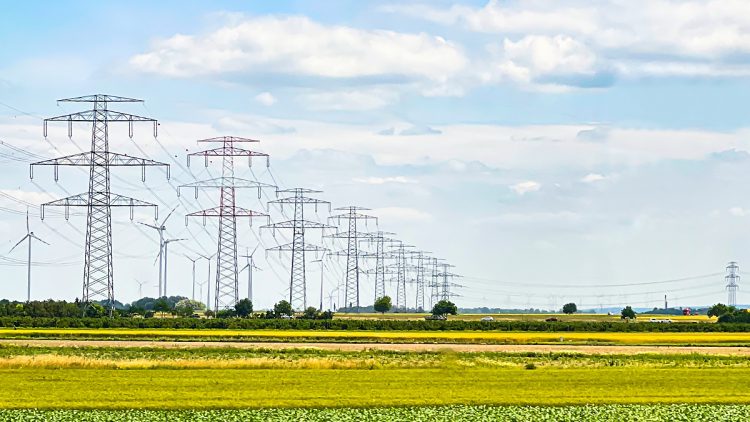An unattractive remuneration framework, administrative areas for improvement, insufficient return on capital, and regulatory uncertainty are some of the factors hindering the deployment of electricity grids in Spain. This is reflected in the report presented during the informative breakfast “Connecting the Future: Electricity Grids for a More Competitive Spain,” presented this Wednesday in Madrid by Deloitte.
The analysis identifies that investment in grids in Spain represents 0.2% of GDP, below countries such as Germany and the Netherlands, which allocate more than double that amount. Furthermore, it identifies significant areas for improvement to address the challenge of electrifying demand.
The meeting, which included the participation of aelēc’s Director of Regulation, Marta Castro, and Deloitte’s Energy Partner, Laureano Álvarez, highlighted the strategic role of electricity grids as a driver of reindustrialization, attracting investment, and economic growth.
Additionally, despite the identified barriers, the report emphasizes that electricity grids are reaching a turning point, becoming a strategic factor for strengthening economic competitiveness, driving reindustrialization, and attracting new industrial investment. A more modern and digitalized grid will make it possible to manage increasingly complex demand, facilitate the integration of renewable energy, improve resilience to critical events, and guarantee consumers a stable and competitive supply.
“Electricity grids are the backbone of the energy system and a lever of competitiveness for Spain. Without a stable and attractive regulatory framework that incentivizes investment, our country risks missing a historic opportunity for reindustrialization. The electrification of the economy, the attraction of new industries, and job creation depend on our ability to deploy modern, resilient, and digitalized infrastructure. Failure to act now would slow down the energy transition and limit industrial development in the coming decades,” emphasized Marta Castro, Director of Regulation at aelēc.
For his part, Laureano Álvarez, Energy Partner at Monitor Deloitte, noted that “modernizing and digitizing grids is not just about reinforcing infrastructure; it’s about providing Spain with the capacity to integrate renewables, manage more complex demand, and guarantee a reliable and competitive supply. Grids are the key that connects the energy transition with industrial and technological transformation, and their development will allow our country to lead in sectors such as electric mobility, data centers, and energy storage.”
Keys to Seizing the Country’s Opportunity
To reverse this situation, the document presents several strategic recommendations. First, it considers it essential to attract grid investment to Spain through a more competitive regulatory framework that adjusts the rate of return to the real cost of capital and the levels of European benchmark countries, around 7.5%. It also emphasizes the need to adapt investment limits, in line with the new Royal Decree on investment plans, to facilitate the connection of new demand and reduce the percentage of rejected applications.
It also proposes making better use of the existing grid, prioritizing more mature projects, extending financial guarantees to low-voltage applications, and establishing intermediate milestones to certify the degree of project progress. Finally, it advocates advancing flexibility regulation, which would allow for a more active role for consumers, encourage demand adaptation and energy storage, and optimize the use of distributed resources.
The electricity grid capital goods sector—which had a turnover of more than €4.1 billion in 2022 and directly employs 12,900 people in Spain—would be one of the main beneficiaries of this investment boost, along with conventional industry and new industrial activity linked to the energy transition.
About aelēc
aelēc is the Association of Electric Energy Companies, widely present throughout the electricity value chain. aelēc focuses its activities on the dissemination, outreach, and promotion of the technical and regulated aspects of electricity activities, particularly in distribution, and works to position itself as a key player in helping to develop a successful energy transition in Spain.
aelēc’s current members are EDP, Endesa, and Iberdrola, multinational business groups present in more than 30 countries across five continents, as well as IBM and Minsait as technology members. Additionally, aelēc has a partner specialized in the industrial self-consumption sector, NetOn Power, and a partner in the energy transition section, Atlantica Sustainable Infrastructure.






























